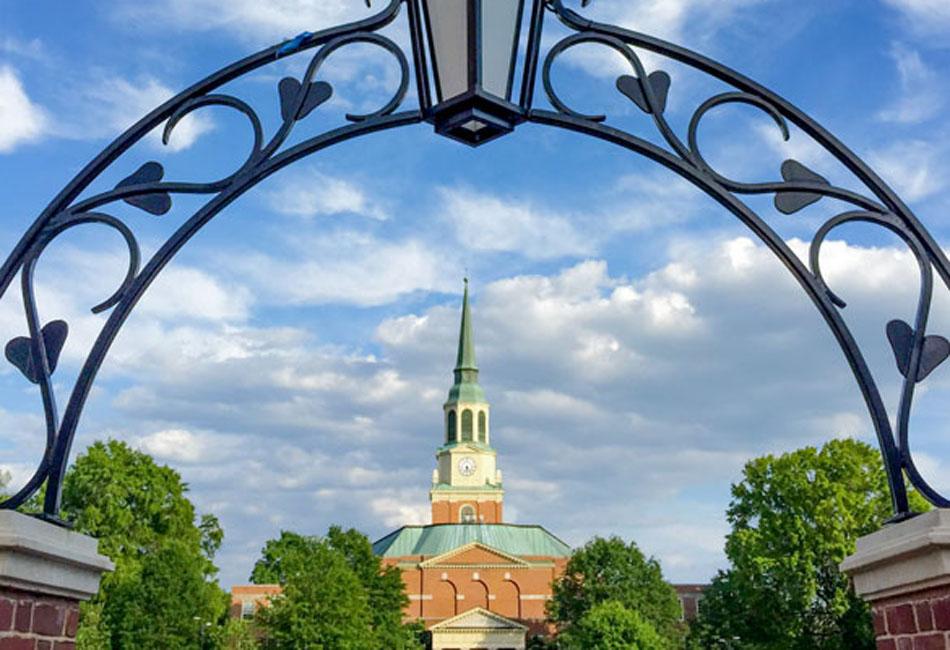On Aug. 28, more than 250 incoming students participated in Project Wake, an opportunity to engage in 90-minute discussions focused on a book they elected to read before matriculation.
“Project Wake began two years ago in response to widely mixed reviews of the traditional summer academic project,” said Dean Buchanan.
As Senior Associate Dean for Academic Advising, she is a member of the Committee on Orientation and Lower-Division Advising (COLDA), which assesses and redesigns orientation and first-year experience programming, including events that help facilitate important conversations about diversity and inclusion.
Faculty, staff and student co-facilitators volunteered to lead discussion groups based on readings they identified as relevant to this year’s theme: citizenship.
“In election years, the committee tries to do something that has to do with the elections to get students thinking about their roles as citizens and about how to talk to one another about political issues that may be difficult to talk about,” Buchanan said.
“We thought if we made it about investigating what our obligations to each other as citizens are that it would have relevance to both the election year and to issues on our campus. It encompasses some of the things we were trying to achieve through the ‘Exploring Difference, Embracing Diversity’ theme last year.”
Freshman participant Natalie Valdes affirmed that she and others deepened their ability to engage in challenging conversations about the topics at hand. “It was interesting to see other people’s point of view,” Valdes said, “as opposed to how I was seeing it. We had the chance to debate our perspectives a bit.”
The groups — 31 in total — offered a unique opportunity to experience the dynamics of a college-level, seminar-style classroom.
“This program is a way to experience seminars and become familiar and excited about them,” said Erica Still, associate professor of English and discussion group facilitator. “I think Project Wake is designed in a way that is ideal for students as an avenue to start their experience here.”
“I don’t view myself as a strong English student, so being able to have this discussion before my first English or writing seminar-style class was really nice,” Valdes said. “It helped me learn what’s expected. To me, that was the most valuable thing.”
“I definitely feel more prepared for the group discussion style, and now I’m more inclined to sign up for other things on campus,” said freshman Makenna Jones, another participant in Still’s group.
The self-selecting nature of the program seems to account for its success.
“It’s fun to see students at that part of the orientation experience because they’re eager for classes,” Still said. “Students who self-select to be part of this project bring a lot of energy and a lot of enthusiasm.”
“I’m a really heavy reader — I read something like thirty books this summer for fun, — so I thought I may as well read this one for school,” said freshman Alex Heffes. “I would’ve never read it if it wasn’t for Project Wake, and I’m glad I had the exposure.”
The book she referred to is Dinaw Mengestu’s “All Our Names.”
“[The novel is] about an immigrant from Uganda and the relationship he forms with his social worker,” Still said. “It’s a story about belonging and loyalty, in terms of nation and citizenship.”
Valdes said the novel explored “how different identities can define your citizenship whether as a citizen of society or as a citizen of a specific country.”
In the context of revolution, “is it okay to go against the rule of law or should you be a ‘good’ citizen and follow the law? This book made you question your values,” Jones said.
“What the committee will continue to grapple with is whether we care more about doing something that gets out to a larger number of our incoming students, or if it is more important that the experience be a really positive one for those people who are looking for it at that time,” Buchanan said.
Responses from facilitators and students have been overwhelmingly positive thus far. Regardless of the future of the summer academic project, this year’s program is likely to have far-reaching effects.
“Being a citizen of this campus means getting involved,” Valdes said. “And I’m excited to do that in my time here.”













